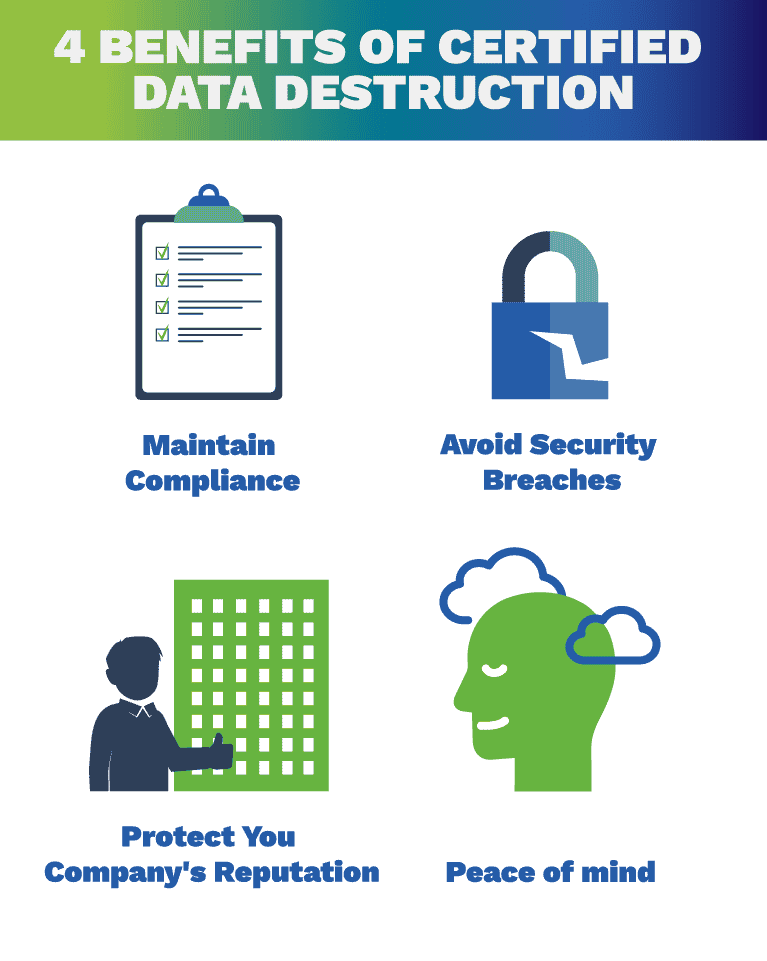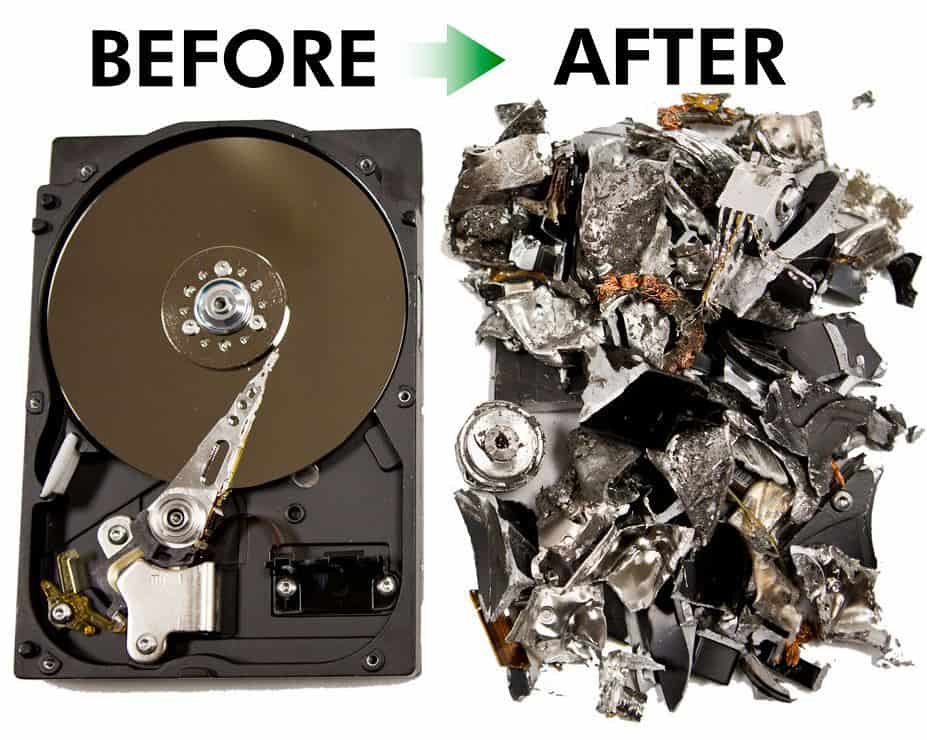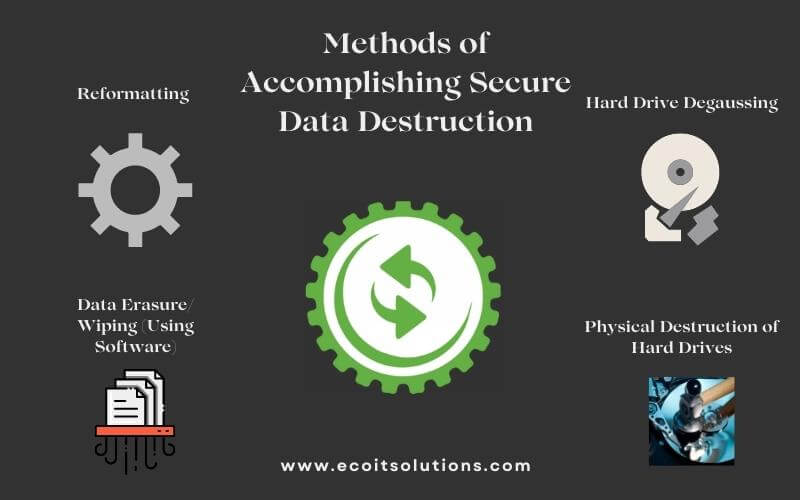Vital Cyber Security Practices for Effective Data Destruction Techniques
Vital Cyber Security Practices for Effective Data Destruction Techniques
Blog Article
The Vital Nature of Data Damage in Upholding Computer System Safety Providers and Protecting Versus Unauthorized Gain Access To
In an age where data breaches and identity burglary are progressively prevalent, the significance of effective information damage can not be overstated. Organizations should recognize that the failure to properly dispose of delicate information presents not only legal and financial risks yet additionally a prospective erosion of customer depend on. Different methods, from information wiping to physical destruction, function as essential safeguards versus unapproved accessibility. Nevertheless, understanding the effects of information damage techniques and conformity with policies elevates necessary concerns concerning the competence of current approaches and their long-lasting viability despite developing hazards.
Importance of Data Devastation
In an increasingly digital globe, the relevance of data destruction can not be overstated. As companies accumulate large quantities of delicate details, the potential consequences of stopping working to appropriately take care of and get rid of of that data come to be significantly severe. Data breaches, identity theft, and corporate espionage pose considerable dangers, emphasizing the need of reliable data damage techniques.

Moreover, as modern technology develops, so also do the methods whereby destructive actors look for to manipulate sensitive info. Organizations should remain watchful and proactive in their information destruction strategies to protect against these evolving dangers. By prioritizing information destruction, firms not only shield their possessions yet also foster count on among stakeholders and clients, demonstrating a dedication to liable information management and safety techniques.
Approaches of Effective Data Destruction
To make sure the irreversible and complete destruction of sensitive data, organizations can employ a variety of effective methods tailored to their particular requirements. One of the most typical techniques is data wiping, which includes utilizing specialized software application to overwrite existing information several times, making healing basically impossible. This is particularly useful for hard disks and solid-state drives, where traditional deletion approaches are poor.
An additional efficient method is degaussing, which uses strong electromagnetic fields to interfere with the magnetic domain names on storage media, rendering the information irretrievable. This approach is particularly suited for magnetic storage space tools, such as tape drives and hard drives.
Physical destruction is additionally a sensible option, involving the shredding, squashing, or incineration of storage space devices. This approach assurances that data can not be recovered, making it suitable for organizations handling very sensitive information.

Conformity With Information Protection Rules
Organizations need to not just concentrate on effective data damage approaches but also make certain useful link compliance with data security guidelines that control how sensitive information is managed and disposed of. Abiding by these policies is necessary for maintaining and safeguarding personal data consumer count on. Regulations such as the General Information Security Guideline (GDPR) in the European Union and the Medical Insurance Mobility and Responsibility Act (HIPAA) in the United States impose strict guidelines on data management, which include requirements for the secure disposal of sensitive information.
To attain conformity, companies have to implement comprehensive data devastation plans that line up with these legal frameworks. This consists of recognizing information that needs destruction, developing methods for safe and secure methodsâEUR" such as shredding physical media or making use of software program that satisfies market standards for information wipingâEUR" and preserving comprehensive documents of damage activities. Normal audits must be carried out to ensure adherence to these plans and to determine any potential locations for enhancement.
Failure to adhere to information protection laws can cause significant lawful implications, including large fines and damage to a company's reputation. Integrating conformity right into data destruction methods is not only a lawful obligation yet likewise a crucial part of a robust details security strategy.
Repercussions of Poor Data Handling
Poor information handling can cause serious repercussions that expand past instant functional problems. Organizations may deal with substantial financial losses as a result of data breaches, which usually result in expensive removal efforts, lawful costs, and regulative fines. These monetary ramifications can prevent and strain resources development, eventually impacting a company's lower line.
In addition, inadequate information handling can drastically damage a company's reputation. Stakeholders, companions, and consumers may lose rely on an entity that falls short to secure delicate details, leading to decreased customer commitment and prospective loss of service possibilities. This disintegration of trust can take years to rebuild, if it can more tips here be brought back whatsoever.
In addition, companies might encounter legal ramifications arising from non-compliance with data defense guidelines. Such violations might result in fines and examinations, intensifying the economic burden and additional staining the organization's image.
In the world of cybersecurity, insufficient data administration methods can produce vulnerabilities that make systems much more prone to unauthorized accessibility and cyberattacks. Eventually, these effects underscore the critical importance of executing robust data managing treatments to safeguard delicate information and maintain business honesty.
Best Practices for Secure Data Disposal


To start with, data ought to be classified according to its level of sensitivity. Delicate information needs much more rigorous disposal approaches, such as shredding physical documents and utilizing innovative software program for electronic data wiping. Utilizing certified information damage services makes certain conformity with industry regulations and criteria.
Secondly, companies ought to execute a data disposal plan that mandates normal audits. This plan should lay out the treatments for data retention and devastation, guaranteeing that out-of-date data is dealt with immediately and safely. Training staff members on these methods is important to promoting a culture of protection recognition.
Last but not least, keeping thorough records of disposed data improves responsibility and gives a clear audit trail. This documentation needs to consist of the type of data damaged, the method made use of, and the date of disposal.
Final Thought
Adopting robust methods such as information cleaning, degaussing, and physical devastation, along with compliance with policies you can check here like GDPR and HIPAA, is necessary for protecting delicate information. Ignoring correct information disposal techniques can lead to extreme consequences, including information breaches and legal repercussions.
In an age where information breaches and identification theft are increasingly widespread, the importance of efficient information destruction can not be overstated. data destruction. Data violations, identification burglary, and company espionage position considerable hazards, underscoring the requirement of efficient information devastation practices
Compliance with guidelines such as GDPR and HIPAA requireds that companies carry out rigorous information defense measures, including the safe devastation of information at the end of its lifecycle.
By prioritizing data destruction, business not just protect their possessions yet likewise foster trust fund amongst customers and stakeholders, showing a commitment to accountable data management and protection methods.
Organizations need to not only focus on effective data devastation approaches however likewise make sure compliance with data protection laws that control just how sensitive information is dealt with and disposed of.
Report this page